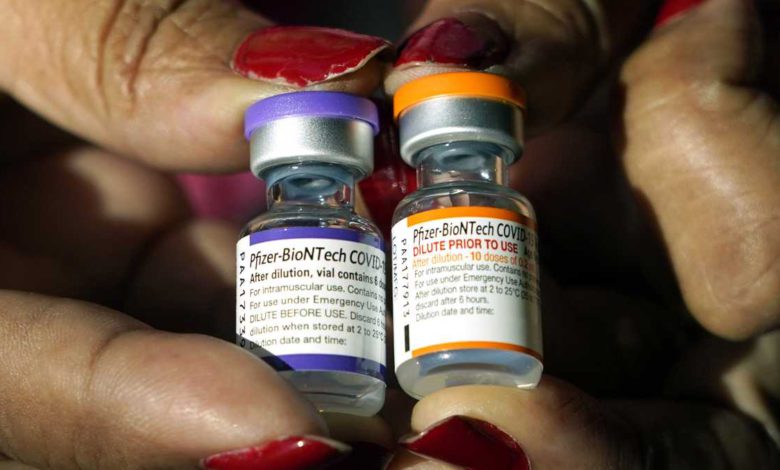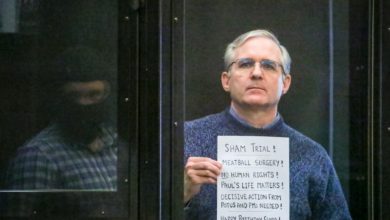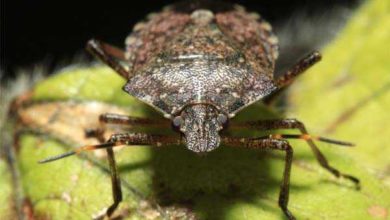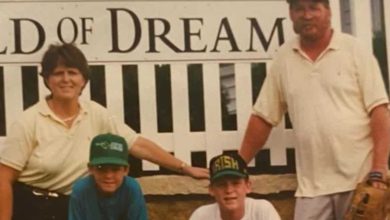

Video above: Doctor discusses Moderna COVID-19 vaccine for young childrenThree doses of Pfizer’s COVID-19 vaccine offer strong protection for children younger than 5, the company announced Monday. Pfizer plans to give the data to U.S. regulators later this week in a step toward letting the littlest kids get the shots.The news comes after months of anxious waiting by parents desperate to vaccinate their babies, toddlers and preschoolers, especially as COVID-19 cases once again are rising. The 18 million tots under 5 are the only group in the U.S. not yet eligible for COVID-19 vaccination.The Food and Drug Administration has begun evaluating data from rival Moderna, which hopes to begin offering two kid-sized shots by summer.Pfizer has had a bumpier time figuring out its approach. It aims to give tots an even lower dose — just one-tenth of the amount adults receive — but discovered during its trial that two shots didn’t seem quite strong enough for preschoolers. So researchers gave a third shot to more than 1,600 youngsters — from age 6 months to 4 years — during the winter surge of the omicron variant.In a press release, Pfizer and its partner BioNTech said the extra shot did the trick, revving up tots’ levels of virus-fighting antibodies enough to meet FDA criteria for emergency use of the vaccine with no safety problems.Preliminary data suggested the three-dose series is 80% effective in preventing symptomatic COVID-19, the companies said, but they cautioned the calculation is based on just 10 cases diagnosed among study participants by the end of April. The study rules state that at least 21 cases are needed to formally determine effectiveness, and Pfizer promised an update as soon as more data is available.The companies already had submitted data on the first two doses to the FDA, and BioNTech’s CEO, Dr. Ugur Sahin, said the final third-shot data would be submitted this week.“The study suggests that a low, 3-microgram dose of our vaccine, carefully selected based on tolerability data, provides young children with a high level of protection against the recent COVID-19 strains,” he said in a statement.What’s next? FDA vaccine chief Dr. Peter Marks has pledged the agency will “move quickly without sacrificing our standards” in evaluating tot-sized doses from both Pfizer and Moderna.The agency has set tentative dates next month for its scientific advisers to publicly debate data from each company.Moderna is seeking to be the first to vaccinate the littlest kids. It submitted data to the FDA saying tots develop high levels of virus-fighting antibodies after two shots that contain a quarter of the dose given to adults. The Moderna study found effectiveness against symptomatic COVID-19 was 40% to 50% during the omicon surge, much like for adults who’ve only had two vaccine doses.Complicating Moderna’s progress, the FDA so far has allowed its vaccine to be used only in adults.The FDA is expected to review Moderna's data on both the youngest age group, plus its study of teens and elementary-age children. Other countries already have expanded Moderna's shot to kids as young as 6.While COVID-19 generally isn’t as dangerous to youngsters as to adults, some children do become severely ill or even die. And the omicron variant hit children especially hard, with those under 5 hospitalized at higher rates than at the peak of the previous delta surge.It’s not clear how much demand there will be to vaccinate the youngest kids. Pfizer shots for 5- to 11-year-olds opened in November, but only about 30% of that age group have gotten the recommended initial two doses. Last week, U.S. health authorities said elementary-age children should get a booster shot just like everyone 12 and older is supposed to get, for the best protection against the latest coronavirus variants.___The Associated Press Health and Science Department receives support from the Howard Hughes Medical Institute’s Department of Science Education. The AP is solely responsible for all content.
Video above: Doctor discusses Moderna COVID-19 vaccine for young children
Three doses of Pfizer’s COVID-19 vaccine offer strong protection for children younger than 5, the company announced Monday. Pfizer plans to give the data to U.S. regulators later this week in a step toward letting the littlest kids get the shots.
The news comes after months of anxious waiting by parents desperate to vaccinate their babies, toddlers and preschoolers, especially as COVID-19 cases once again are rising. The 18 million tots under 5 are the only group in the U.S. not yet eligible for COVID-19 vaccination.
The Food and Drug Administration has begun evaluating data from rival Moderna, which hopes to begin offering two kid-sized shots by summer.
Pfizer has had a bumpier time figuring out its approach. It aims to give tots an even lower dose — just one-tenth of the amount adults receive — but discovered during its trial that two shots didn’t seem quite strong enough for preschoolers. So researchers gave a third shot to more than 1,600 youngsters — from age 6 months to 4 years — during the winter surge of the omicron variant.
In a press release, Pfizer and its partner BioNTech said the extra shot did the trick, revving up tots’ levels of virus-fighting antibodies enough to meet FDA criteria for emergency use of the vaccine with no safety problems.
Preliminary data suggested the three-dose series is 80% effective in preventing symptomatic COVID-19, the companies said, but they cautioned the calculation is based on just 10 cases diagnosed among study participants by the end of April. The study rules state that at least 21 cases are needed to formally determine effectiveness, and Pfizer promised an update as soon as more data is available.
The companies already had submitted data on the first two doses to the FDA, and BioNTech’s CEO, Dr. Ugur Sahin, said the final third-shot data would be submitted this week.
“The study suggests that a low, 3-microgram dose of our vaccine, carefully selected based on tolerability data, provides young children with a high level of protection against the recent COVID-19 strains,” he said in a statement.
What’s next? FDA vaccine chief Dr. Peter Marks has pledged the agency will “move quickly without sacrificing our standards” in evaluating tot-sized doses from both Pfizer and Moderna.
The agency has set tentative dates next month for its scientific advisers to publicly debate data from each company.
Moderna is seeking to be the first to vaccinate the littlest kids. It submitted data to the FDA saying tots develop high levels of virus-fighting antibodies after two shots that contain a quarter of the dose given to adults. The Moderna study found effectiveness against symptomatic COVID-19 was 40% to 50% during the omicon surge, much like for adults who’ve only had two vaccine doses.
Complicating Moderna’s progress, the FDA so far has allowed its vaccine to be used only in adults.
The FDA is expected to review Moderna's data on both the youngest age group, plus its study of teens and elementary-age children. Other countries already have expanded Moderna's shot to kids as young as 6.
While COVID-19 generally isn’t as dangerous to youngsters as to adults, some children do become severely ill or even die. And the omicron variant hit children especially hard, with those under 5 hospitalized at higher rates than at the peak of the previous delta surge.
It’s not clear how much demand there will be to vaccinate the youngest kids. Pfizer shots for 5- to 11-year-olds opened in November, but only about 30% of that age group have gotten the recommended initial two doses. Last week, U.S. health authorities said elementary-age children should get a booster shot just like everyone 12 and older is supposed to get, for the best protection against the latest coronavirus variants.
___
The Associated Press Health and Science Department receives support from the Howard Hughes Medical Institute’s Department of Science Education. The AP is solely responsible for all content.
Source link









